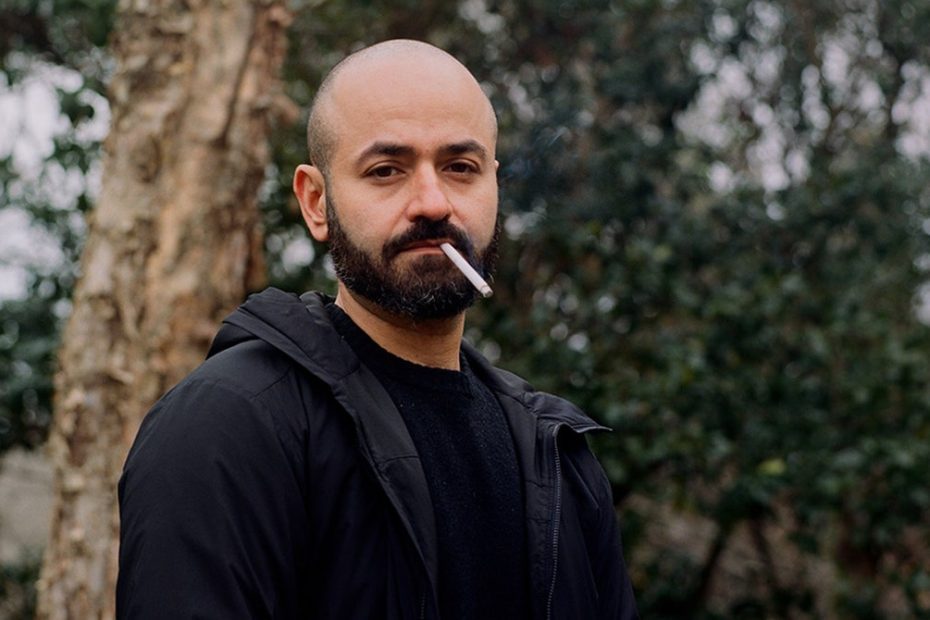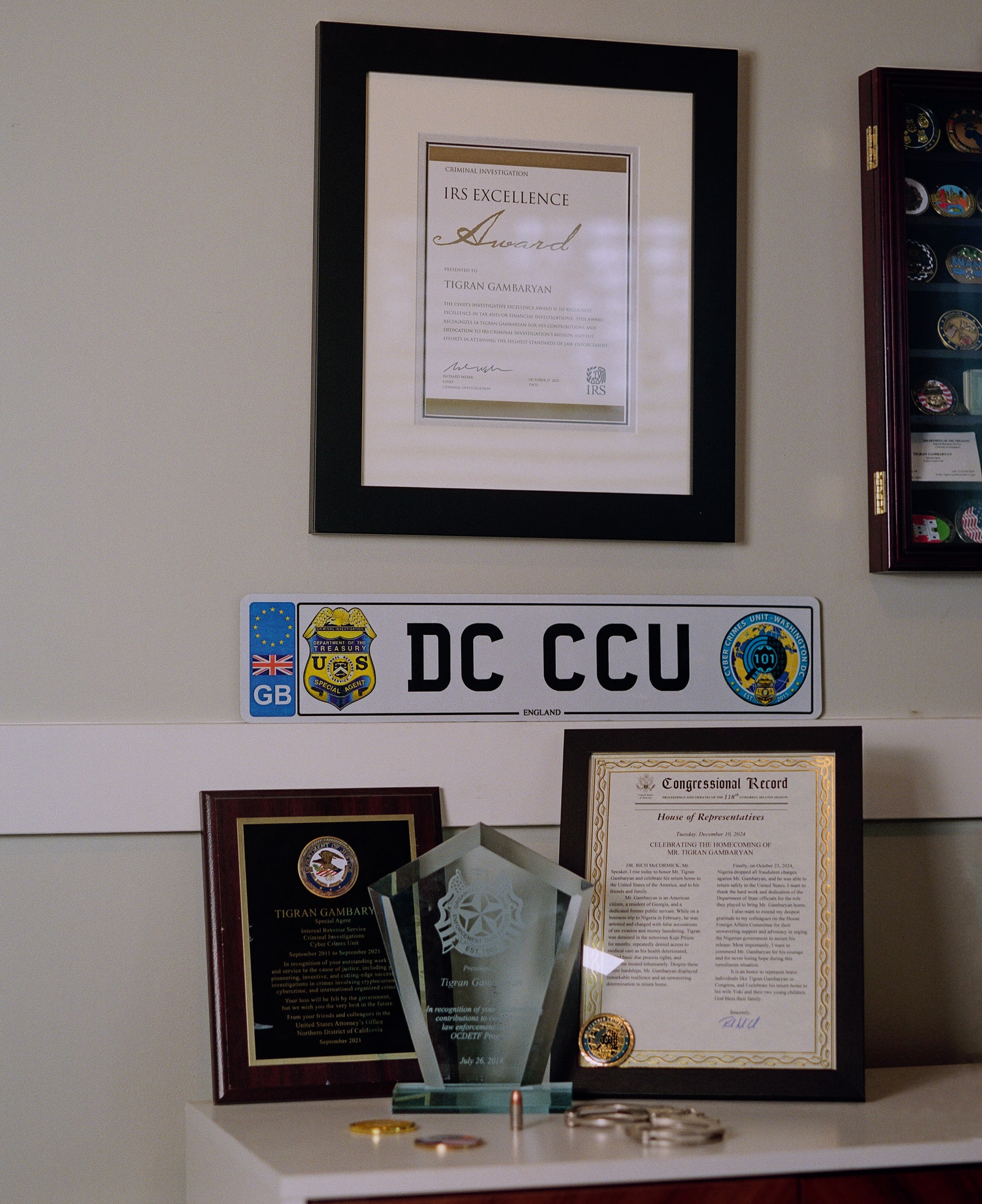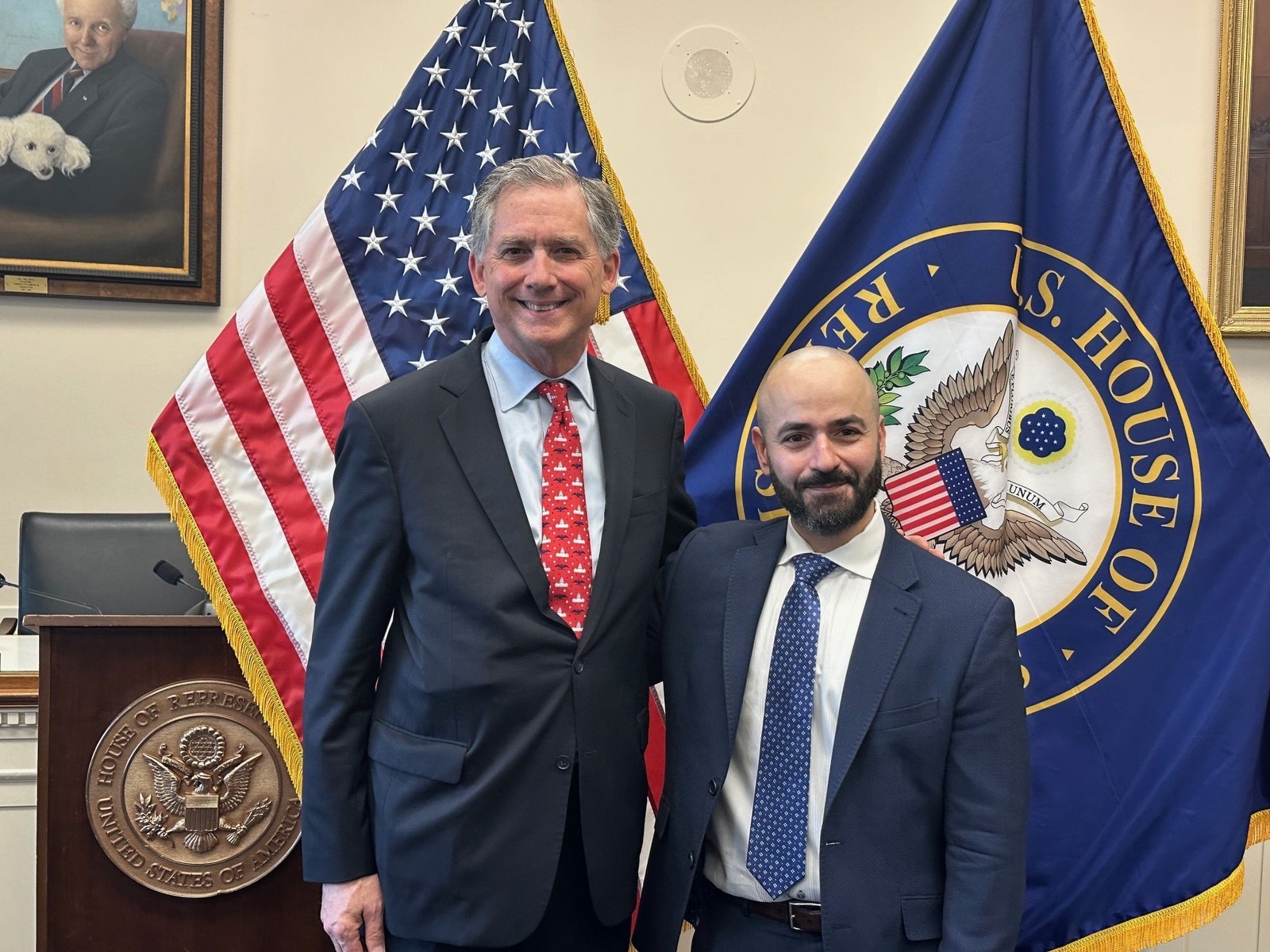Gambaryan says he wanted to hear Ogunjobi explaining. On the phone, Gambaryan remembers that the EFCC officer began to cry, repeatedly apologized, God thanked that Gambaryan had been released.
It was too much for Gambaryan to process. He listened quietly without accepting the apology. In the midst of the outpouring of Ogunjobi, he noticed that an American friend called, an agent of the secret service with which he had collaborated in the past. Gambaryan did not know it yet, but the agent happened to be in Rome for a conference with the old boss of Gambaryan, the head of the IRS-CI Cybercrime Division, Jarod Koopman, who both wanted to bring him beer and pizza to his hotel in his hotel .
Gambaryan told Ogunjobi that he had to go and he ended the call.
On a cold And windy December day on Capitol Hill, former federal agents and prosecutors, officials from the Ministry of Foreign Affairs and conference employees mix in a plush room in the office building of Rayburn House. One by one, members of the congress come in and shake their hand with Tigran Gambaryan, who wears a dark blue suit and tie, cut his beard shut and neatly shaved, only slightly lying from emergency operation on his back that he underwent a month earlier In Georgia.
Gambaryan poses for photos and chats with every legislator, assistant and official from the Ministry of Foreign Affairs long enough to thank them for their role to get him home. When French Hill says it is good to see him again, Gambaryan asks that he hopes that he will smell better than during their meeting in Kuje.
The reception is one in a series of VIP welcomed that Gambaryan received on his return. At the airport in Georgia, representative McCormick had come to greet him and gave him an American flag that had flown above the Capitol building the previous day. The White House has released a statement stating that President Biden had called the Nigerian president and “underlines his appreciation for President Tinubu's leadership in securing the release of humanitarian grounds of American citizens and former American law enforcement officer Tigran Gambaryan.”
The thank you, I learned later, was part of the deal that the American government closed with Nigeria, including helping with research into Binance – which is still ongoing. Nigeria continues to continue both Binance and Anjarwalla in the absence. A spokesperson for Binance wrote in a statement that the company is 'relieved and grateful' that Gambaryan is at home and pronounced thanks to everyone who has worked to guarantee his release. “We want to place this episode behind us and continue to work on a better future for the blockchain industry in Nigeria and all over the world,” the explanation adds. “We will continue to defend ourselves against false claims.” Nigerian government officials did not respond to the repeated requests of Wired for comments on the Gambaryan case.
After the reception, Gambaryan and I come outside in a taxi and I ask him what the next step is for him. He says he might be back in the government, if the new administration will have him – and if Yuki will take a new step back to DC. (Crypto News site Coiindesk reported last month that he was recommended by insiders in the cryptocurrency industry with connections with President Trump for roles as a senior as head of crypto-assets in the SEC or a high-level position in the Cyber Division of the FBI.) Before he keeps something in overviews. He says vague: “I probably need time to get my head straight.”
I ask him how he feels that the experience in Nigeria has changed him. “I think it was getting angry?” He responds to a strange light tone, as if he is thinking about the question for the first time. “It caused me to take revenge against those who did this.”
Revenge for Gambaryan is perhaps more than a fantasy. He strives for a human rights procedure against the Nigerian government that started during his detention, and hopes that there will be an investigation into the Nigerians that he claims to have held him for most of a year of his life. Sometimes, he says, he even sent messages to individual officials he holds responsible and says them, “You will see me again” that what they did “shame on the badge”, that he can forgive what they have him affected, but not what they have done to his family.
“Was it stupid for me to do that? Probably, “he tells me in the taxi. “I was on the floor with back pain and was just bored.”
While we get out of the car in his hotel in Arlington and Gambaryan lights a cigarette, I tell him that, despite his description of himself as anger than before his time in prison, he actually seems calmer and happier to me than in the past Years – When I covered his serial branchedowns of corrupt federal agents, crypto -whawers and child abusers, he always had me as angry, driven, ruthlessly as in chasing the goals of his studies.
Gambaryan replies that if he seems more relaxed, it is only because he is happy to be at home – to see his family and his friends, to be able to walk again, not to be caught between the forces that so much bigger His then he that he is in a conflict that had so little to do with him. Not to have died in prison.
Regarding driven by anger in the past, Gambaryan does not agree.
“I'm not sure if that was anger. That was justice, “he says. “I wanted justice. And I still do that. “



